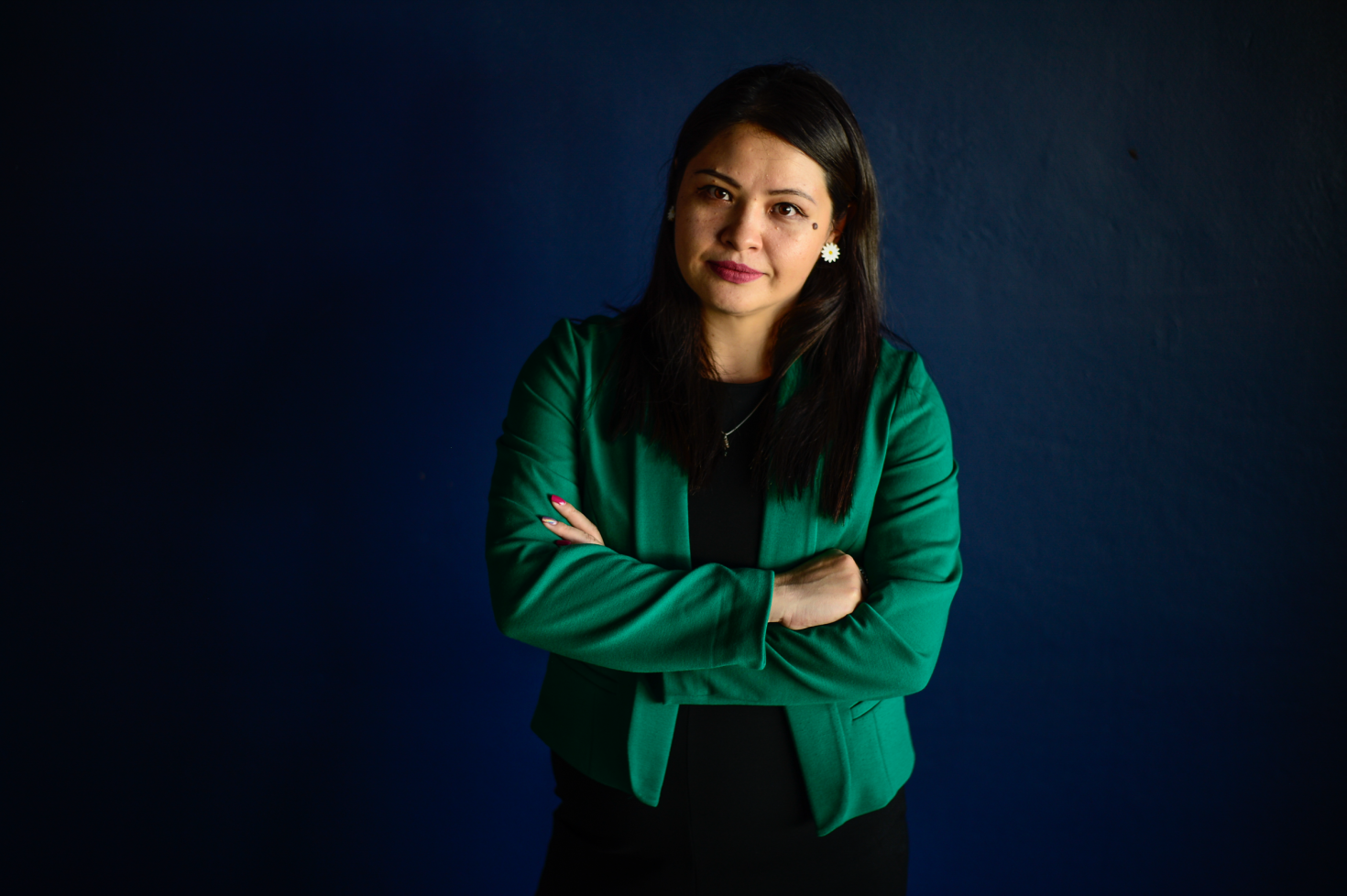María Luz Nóchez - El Salvador Collapse

"When facing gender-based harassment, women journalists have the right to set boundaries and prioritise self-care without feeling guilty, shallow or being singled out for lack of commitment. Despite the urgency and importance of our work and perspectives, our mental health must come first, particularly in hostile contexts. A rested mind is a new source of strength and opportunity."
Listen to María Luz telling her story here:
Being a woman is not quite the problem, rooted sexism is. As a woman in journalism, I have felt like I had to earn the respect of my colleagues by proving I am tough, while still coming across as approachable. It is like playing by the boy's club rules but being left out.
In El Salvador, journalism is still seen as a very male profession. Not only are we, women journalists, questioned on our suitability to hold power to account, but our professional development is also linked to our sex lives. We are judged on our appearance - weight, age, choice of clothes - and by how we react to circumstances. Keeping our composure is more valued than reacting emotionally. While men are heroes for keeping those who hold power in line, women are often seen as hysterical. In a context where the effects of harassment on women are not recognised, many choose to censor themselves.
The systematic harassment my newspaper El Faro has faced since Nayib Bukele’s presidency started, both online and financially through audits, has translated into fatigue, paranoia, and stress-induced irritable bowel syndrome. Since 2020, I have lost any sense of privacy, it is more like a fantasy to me now. My phone was infected with Pegasus, a powerful Israeli spyware, on three different occasions. Not only did they have access to all of the information I had on my phone, but they also extracted it. Recently, I discovered a drone flying over my house, a vigilance technique used in the last three years to spy on journalists. I have learned to live under surveillance.
Exercise and therapy have helped me a lot to deal with these threats. But as a journalist whose main coverage is gender-based violence, my main motivation is to keep putting these issues that usually go unnoticed, not only in the media but in society in general, under the microscope. The ability to provide a platform for those who have remained silent or faced reprisals in the past is an important motivation for the kind of journalism I do.
When facing gender-based harassment, women journalists have the right to set boundaries and prioritise self-care without feeling guilty, shallow or being singled out for lack of commitment. Despite the urgency and importance of our work and perspectives, our mental health must come first, particularly in hostile contexts. A rested mind is a new source of strength and opportunity.
